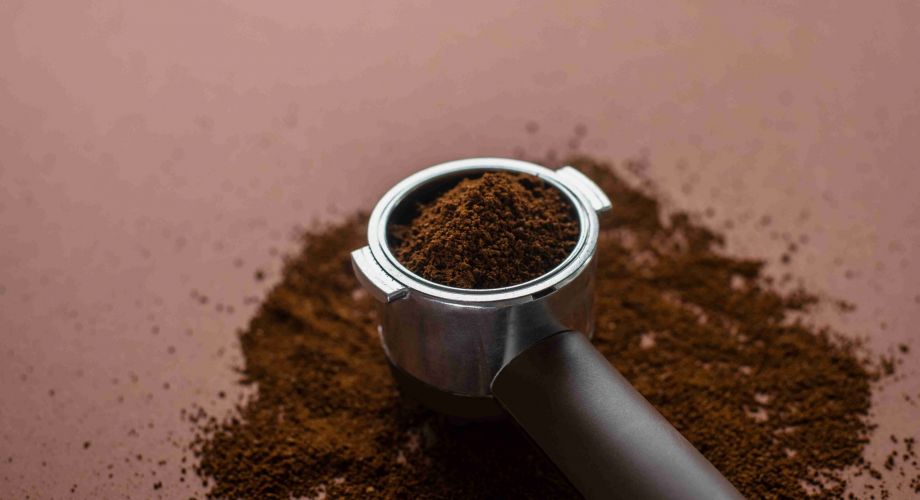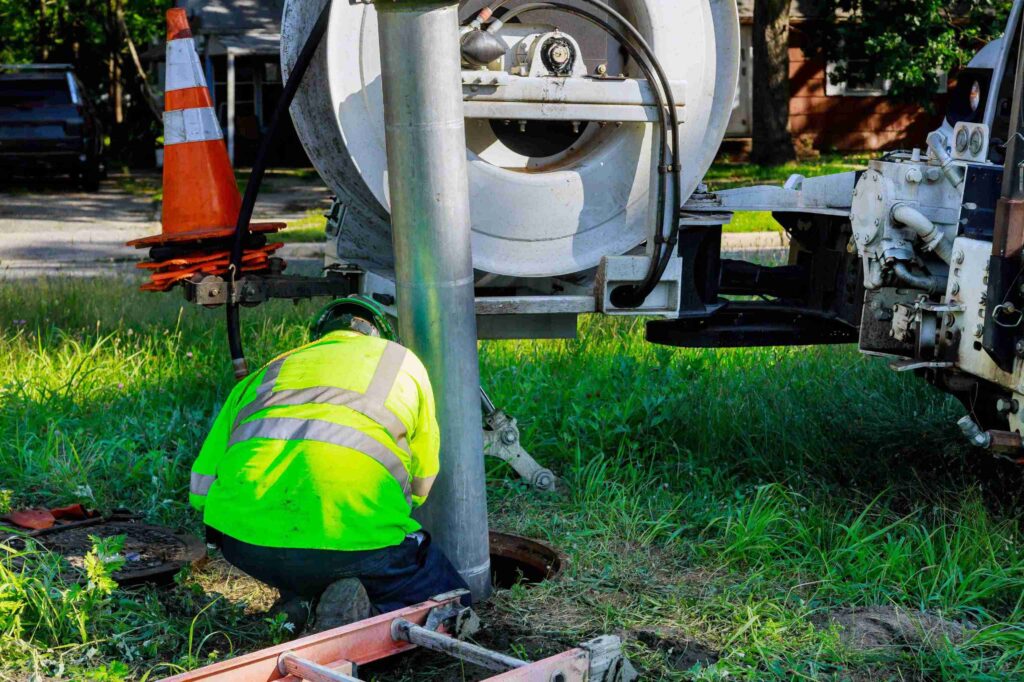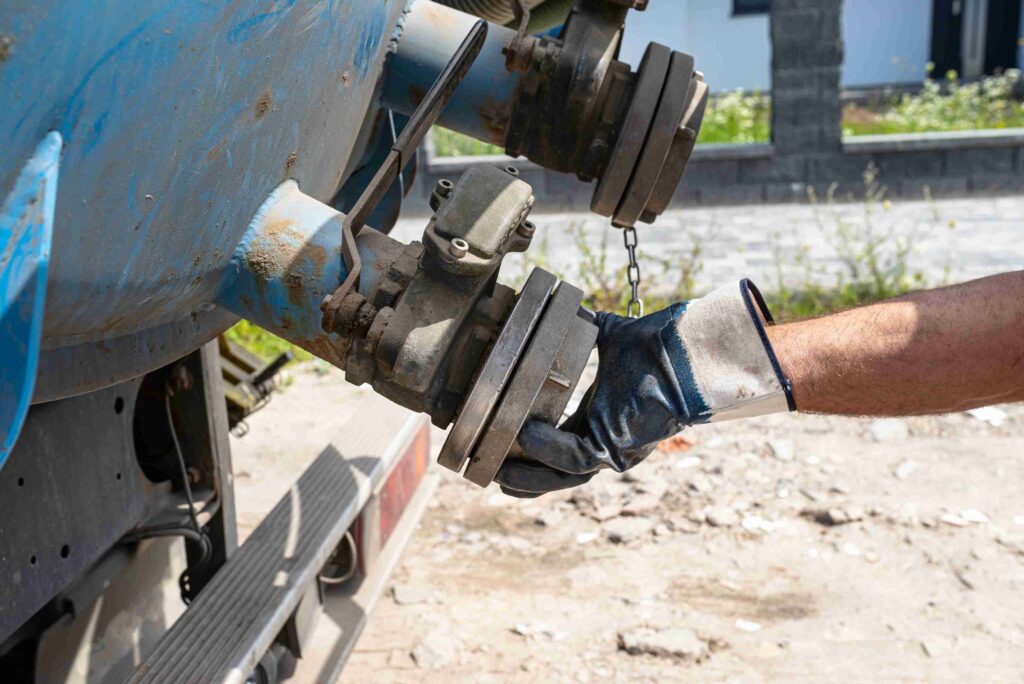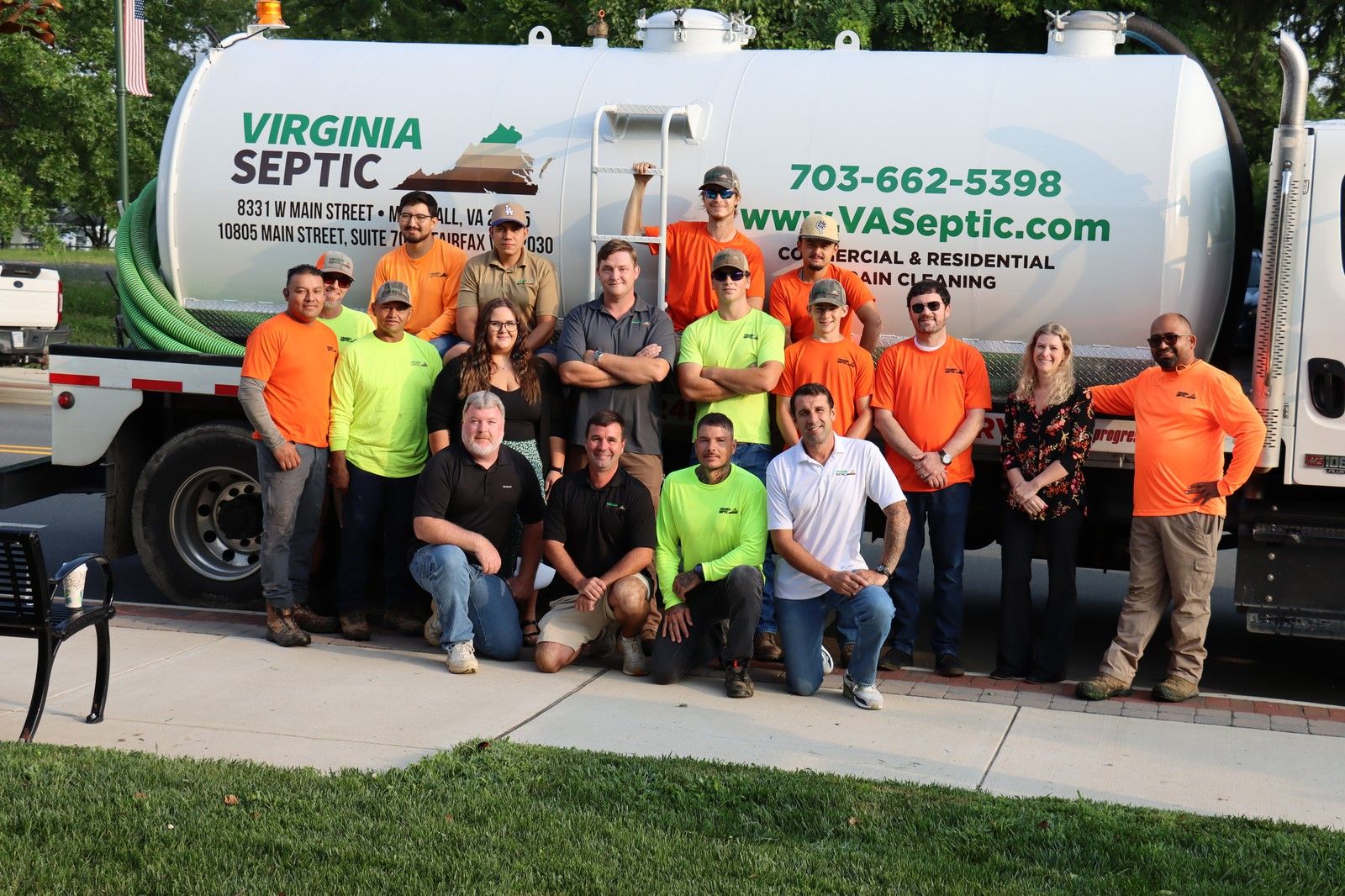
Coffee Grounds In Septic Tank? (Bad Idea)
You probably don’t think twice about rinsing coffee grounds down the sink. It’s quick, convenient, and they’re just tiny bits of coffee – what harm could they do?
The thing is, those harmless-looking grounds can quietly wreak havoc on a septic system.
They don’t dissolve. They don’t break down. And over time, they build up like wet sand in places they shouldn’t.
In this post, we’ll shed some light on why you shouldn’t put coffee grounds in septic tanks.
Table of Contents
ToggleCan You Put Coffee Grounds In A Septic Tank?
No, you should not put coffee grounds in the septic tank.
Coffee grounds don’t break down the same way typical household waste does.
Septic systems rely on bacteria to naturally break down solids, but coffee grounds are tough and fibrous. They resist decomposition, so instead of dissolving, they settle in your tank like sand at the bottom of a bucket.
The more grounds that build up, the more they start to interfere with how your system works.
Eventually, it causes blockages, reduces the tank’s capacity, and pushes solids into places they shouldn’t be (more on this in a minute).
Also Read: Is Kirkland Toilet Paper Septic Safe?
A lot of people think because coffee grounds are “natural,” they’ll just break down and disappear. That’s not true. They’re natural, yes, but they’re not biodegradable in the same way as food scraps or waste.
Once they’re in there, they stay put until the tank is pumped out.

Septic Problems Caused By Coffee Grounds
The problems don’t happen all at once. They build quietly over time and by the time you see obvious signs like slow drains or gurgling sounds, your system might already be stressed.
Here are the main reasons:
#1 Clogged Pipes And Filters
Coffee grounds are gritty and dense, so they don’t float along like soap or water.
As they move through the plumbing, they settle in bends, joints, and filters. Over time, they clump together and start sticking to pipe walls.
At first, the flow might just slow down a little. Then one day, the water backs up and nothing drains properly.
This buildup can also overwhelm the filter that separates solids from liquids in the tank, making the entire system work harder than it should.
Plus, cleaning out these clogs usually requires professional help.
Check Out Our: Septic Tank Cleaning Services In Virginia
#2 Faster Sludge Buildup In The Tank
Inside your septic tank, everything has its place. Solids settle at the bottom as sludge, liquid sits in the middle, and scum floats on top.
Bacteria do their job breaking down organic waste, but coffee grounds don’t cooperate. They settle fast and pile up thick, forcing the sludge layer to grow quicker than normal.
The thicker that layer gets, the less room your tank has to function properly.
That means it needs to be pumped more often, which costs extra money and time.
If you’re rinsing grounds daily, that buildup can happen surprisingly fast. What should’ve lasted a few years before needing pumping might shrink down to a fraction of that time.
#3 Risk Of Solids Reaching The Drain Field
Once sludge builds up too much, it doesn’t just sit quietly at the bottom. It starts getting pushed into the drain field. And that’s where things get serious.
The drain field is designed to handle liquid only, letting it filter through soil and disperse safely.
When solids get in there, they can block the pipes and clog the soil’s pores.
This can lead to wastewater backing up, soggy areas in your yard, or unpleasant smells.
Fixing a compromised drain field isn’t a quick or cheap job. In some cases, it involves digging up large portions of the yard or replacing the system.

#4 Costly Maintenance And Repairs Down The Line
Once coffee grounds start causing problems, the price tag can climb fast.
Clearing clogs in pipes or filters might be a couple hundred dollars. But repairing or replacing a drain field? That can run into the thousands.
And during that time, you might not be able to use your plumbing normally, which turns everyday life into a hassle.
It’s not just the cost – it’s the disruption. A backed-up septic system can make bathrooms unusable, leave you dealing with foul odors, and turn your yard into a muddy mess. All because of something as simple as rinsing out a coffee pot.
Better Ways To Dispose Of Coffee Grounds
The good news is, there are simple ways to get rid of coffee grounds that don’t involve your sink or septic tank:
- Coffee grounds are great for compost piles. They add nitrogen and help create rich, healthy soil.
- Sprinkling them around plants can improve soil structure and act as a mild fertilizer.
- If composting isn’t your thing, the trash bin works just fine. It’s simple and septic-safe.
You can also keep a small container near your coffee maker to collect used grounds. Once it’s full, dump it outside or into your compost pile. It’s easy once it becomes part of your routine.
Also Read: How Much Does A Septic Design Cost?
What To Do If Coffee Grounds Already Went Down The Drain
If you’ve been rinsing grounds into the sink for a while, don’t panic. It doesn’t mean your septic system is doomed. But it does mean it’s worth paying attention to a few things.
Watch for signs like slow drains, gurgling sounds, or water backing up into sinks or tubs.
These are early warnings that something isn’t flowing right.
If you catch it early, a simple cleaning or pumping can usually get things back on track.
It’s also a smart idea to schedule a septic inspection or pumping if it’s been a while. Let the professionals check the sludge level and clear out anything that’s been sitting in there.
Going forward, keep the coffee grounds out. Once you stop adding to the problem, your septic system can keep running smoothly.
Bottom Line
Coffee grounds might seem harmless, but they’re not good for septic systems. They don’t break down, they pile up, and they can lead to clogged pipes, thicker sludge, and drain field damage.
All of that can cost a fortune to fix.
The simplest way to avoid those problems is to change how you dispose of coffee grounds. Compost them, use them in the garden, or toss them in the trash.
It’s a small daily habit that goes a long way in keeping your septic system happy and healthy.
So next time you rinse out the coffee pot, remember: the sink isn’t the right place for those grounds. Your septic system will thank you later.
Your Service Experts

Virginia Septic is a full-service septic company. We do pump outs, inspections, operations and maintenance, repairs, modifications, and full septic system installations. Virginia Septic has been proudly serving the Virginia area since 2010 and is excited to now be serving all of mid-Atlantic Virginia.
Popular Articles
Is Iron Out Safe For Septic Systems? (Solved)
Worst Toilet Paper For Septic Tanks (Guide)
Roots In Septic System? (Here’s What To Do)
Coffee Grounds In Septic Tank? (Bad Idea)
Is Kirkland Toilet Paper Septic Safe? (Solved)
How Much Does A Septic Design Cost In Virginia?
Locations
Marshall, VA
Location
8331 W Main St
Marshall, VA 20115
Phone
Hours
Mon-Fri 8am–5pm
Sat & Sun Closed
Hartfield, VA
Location
11095 General Puller Hwy.
Hartfield, VA 23071
Phone
Hours
Mon-Fri 8am–5pm
Sat & Sun Closed






